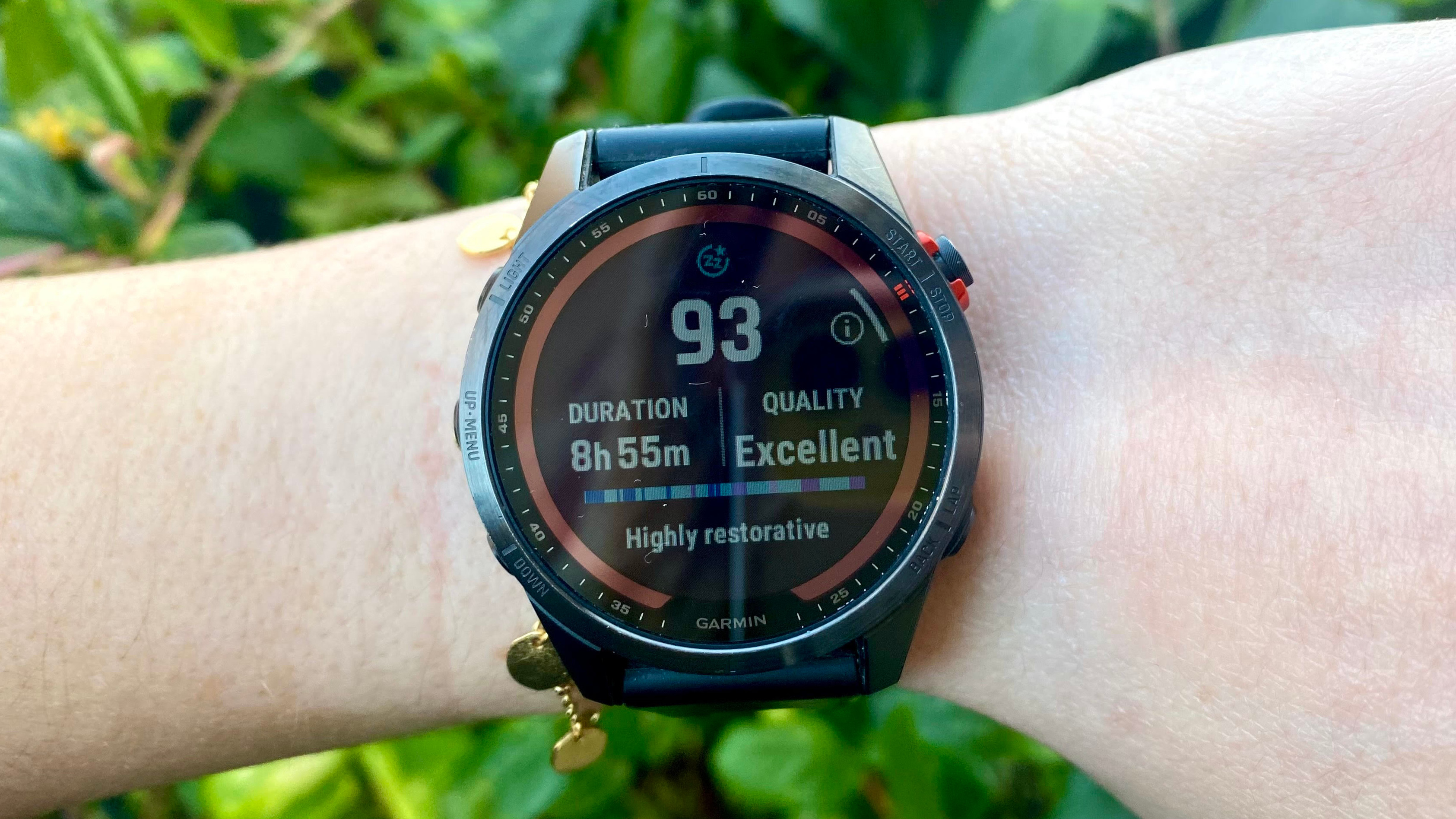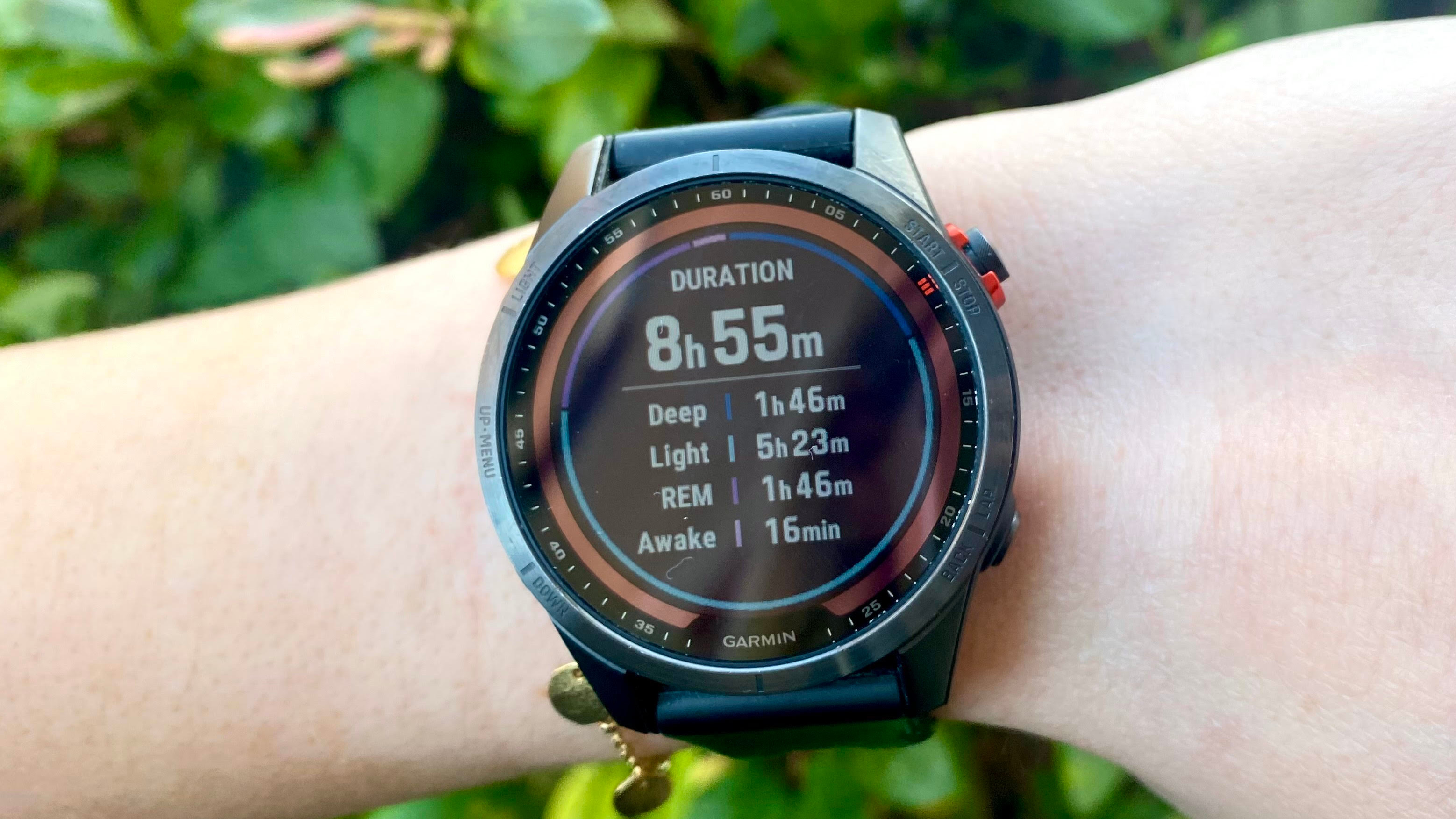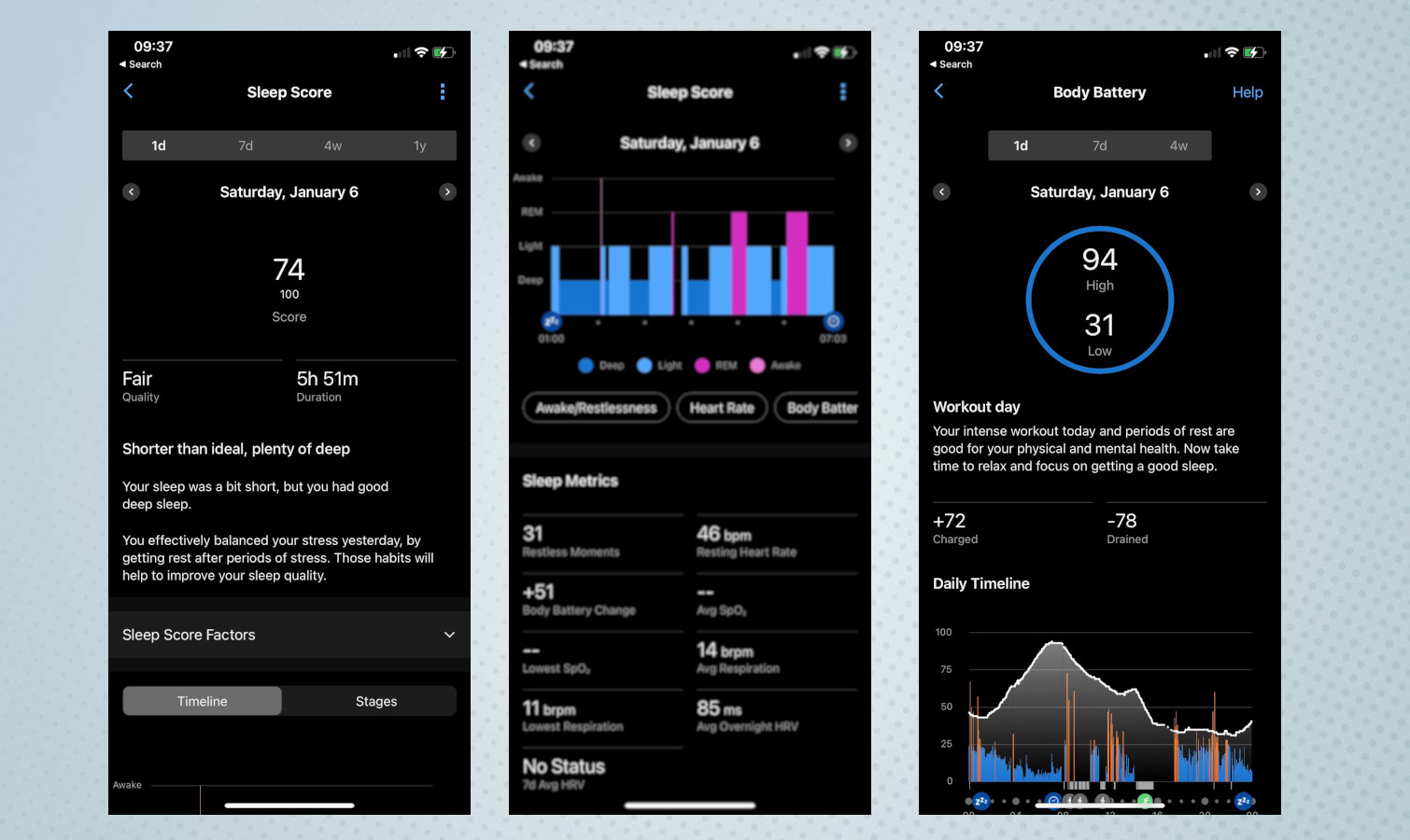
Sleep metrics were the last thing I thought I’d take an interest in when I bought my first running watch. But much to my surprise, it’s something I check regularly now, thanks to the Garmin Sleep Coach tool. Whether I'm gauging if I have enough energy for the next run in my current marathon training plan or deciding on weekend plans after a busy week, I've become highly attuned to my sleep and my body’s need for recovery just by glancing at my watch stats.
The Garmin Sleep Coach tool and Nap Detection features were first launched last year when the Garmin Venu 3 came out. Shortly after, these features automatically downloaded to my Garmin Fenix 7S watch, and before I knew it, I experienced a shift in my attitude towards sleep. Keep reading to find out how…
What is the Garmin Sleep Coach?
Powered by Firstbeat Analytics, the Sleep Coach offers Garmin watch wearers advice on how much sleep they need according to personalised real-time data. Your daily sleep recommendation is calculated according to your age, daily and longer terms activity levels, sleep history, naps logged and heart rate variability (HRV). Depending on the results of those factors, the Sleep Coach will either increase or decrease your tailored sleep recommendations.
3 reasons why Garmin Sleep Coach has improved my sleeping habits

It helped me maximise my exercise performance
I used to think I was invincible. I'd say yes to everything and believe I could do it all at once, yes I’ll take on that extra work, yes I’ll make both parties, yes I’ll do that gym class, yes I’ll be able to finish that long run before the weekend, yes I’ll cook that 30 ingredient meal…the list goes on. It wasn’t until I started looking into my sleep and rest quality through the Garmin Sleep Coach that I realized I was running on little-to-no energy most days. And my workouts were suffering.
Once I began paying attention to my Sleep Score and Body Battery results on my Garmin, I started making better decisions about when to work out and what type of exercise to engage in. For instance, I'm currently training for a marathon, involving a mix of weekly runs with varying intensities. If my Body Battery is low due to poor sleep or excessive exercise, the Sleep Coach gently advises against a hard training session and encourages rest. Instead of pushing through a demanding interval session or long run when my body isn't up to it, I adjust my running plan to include easy miles and prioritize an early bedtime to enhance recovery results.
I have a greater appreciation for naps now
I never used to nap. Falling into slumber while the sun was still up felt impossible, and I believed I could use that time more productively. Then along came Garmin’s Nap Detection feature, which collaborates with other Garmin sleep and activity data to illustrate the potential benefits of a nap.
A perfect example occurred over the Christmas break. After completing an eight-mile run at marathon race pace, having had very little sleep the night before, I felt exhausted. Following the run, I warmed up in the bath and found myself fighting off a midday snooze when I went to crack on with the rest of my day. Eventually, I gave in, and napped. My Garmin watch detected this as a 21-minute restful nap that supposedly ‘charged my Body Battery' and I still managed to sleep perfectly that night.
Now, I have lifted my nap ban, and dare I say it, I look forward to a short nap when my body needs it. According to Garmin, “For best results, try to keep naps shorter than 30 minutes. Naps lasting between 10 and 20 minutes are long enough to provide performance benefits, while naps longer than 30 minutes are more likely to disrupt your sleep schedule.” This recommended time aligns with research findings; for example, one study published in the Nature and Science of Sleep journal suggests that napping can benefit an athlete’s physical and cognitive performance, perceptual measures, psychological state, and night-time sleep.

I have a better bedtime routine
There is something truly dissatisfying about seeing inconsistent sleep patterns on my Garmin Connect app. Waking up for a workday and discovering I only got six hours of sleep the night before feels like a bad omen lingering over my day, knowing that tiredness will likely creep in as the day progresses. This is what prompted me to establish a cut-off time for when I aim to be in bed and ideally attempting to fall asleep by then. As a result of forming a bedtime routine, I noticed my sleep score improved in quality, showing that I was getting a good mixture of deep, light and REM sleep throughout the night. If you want to go even further, you can invest in one of the best mattresses to really make a difference to your night time routine.
Garmin also allows you to monitor your stress levels. Sometimes, my sleep score includes insights like, “You effectively balanced your stress yesterday by getting rest after periods of stress.” This has become a helpful gauge for determining whether an early night is in order after I've felt particularly stressed, allowing my body and mind to rest and recover more effectively.







